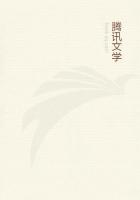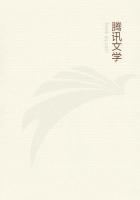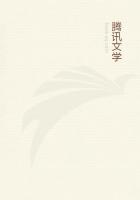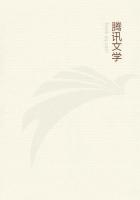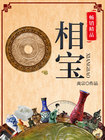It was thought, in those days, that firm faith in hell and the devil was the greatest help to virtue. It certainly made me very unhappy whenever my mind dwelt on such teachings, and I have always had my doubts of the virtue that is based on the fear of punishment.
Perhaps I may be pardoned a word devoted to my appearance in those days.
I have been told that I was a plump little girl, with very fair skin, rosy cheeks, good features, dark-brown hair, and laughing blue eyes. A student in my father's office, the late Henry Bayard of Delaware (an uncle of our recent Ambassador to the Court of St. James's, Thomas F. Bayard), told me one day, after conning my features carefully, that I had one defect which he could remedy. "Your eyebrows should be darker and heavier," said he, "and if you will let me shave them once or twice, you will be much improved." I consented, and, slight as my eyebrows were, they seemed to have had some expression, for the loss of them had a most singular effect on my appearance. Everybody, including even the operator, laughed at my odd-looking face, and I was in the depths of humiliation during the period while my eyebrows were growing out again. It is scarcely necessary for me to add that I never allowed the young man to repeat the experiment, although strongly urged to do so.
I cannot recall how or when I conquered the alphabet, words in three letters, the multiplication table, the points of the compass, the chicken pox, whooping cough, measles, and scarlet fever. All these unhappy incidents of childhood left but little impression on my mind. I have, however, most pleasant memories of the good spinster, Maria Yost, who patiently taught three generations of children the rudiments of the English language, and introduced us to the pictures in "Murray's Spelling-book," where Old Father Time, with his scythe, and the farmer stoning the boys in his apple trees, gave rise in my mind to many serious reflections. Miss Yost was plump and rosy, with fair hair, and had a merry twinkle in her blue eyes, and she took us by very easy stages through the old-fashioned schoolbooks. The interesting Readers children now have were unknown sixty years ago. We did not reach the temple of knowledge by the flowery paths of ease in which our descendants now walk.
I still have a perfect vision of myself and sisters, as we stood up in the classes, with our toes at the cracks in the floor, all dressed alike in bright red flannel, black alpaca aprons, and, around the neck, a starched ruffle that, through a lack of skill on the part of either the laundress or the nurse who sewed them in, proved a constant source of discomfort to us. I have since seen full-grown men, under slighter provocation than we endured, jerk off a collar, tear it in two, and throw it to the winds, chased by the most soul-harrowing expletives. But we were sternly rebuked for complaining, and if we ventured to introduce our little fingers between the delicate skin and the irritating linen, our hands were slapped and the ruffle readjusted a degree closer. Our Sunday dresses were relieved with a black sprig and white aprons. We had red cloaks, red hoods, red mittens, and red stockings. For one's self to be all in red six months of the year was bad enough, but to have this costume multiplied by three was indeed monotonous. I had such an aversion to that color that I used to rebel regularly at the beginning of each season when new dresses were purchased, until we finally passed into an exquisite shade of blue. No words could do justice to my dislike of those red dresses. My grandfather's detestation of the British redcoats must have descended to me. My childhood's antipathy to wearing red enabled me later to comprehend the feelings of a little niece, who hated everything pea green, because she had once heard the saying, "neat but not gaudy, as the devil said when he painted his tail pea green." So when a friend brought her a cravat of that color she threw it on the floor and burst into tears, saying, "I could not wear that, for it is the color of the devil's tail." I sympathized with the child and had it changed for the hue she liked. Although we cannot always understand the ground for children's preferences, it is often well to heed them.
I am told that I was pensively looking out of the nursery window one day, when Mary Dunn, the Scotch nurse, who was something of a philosopher, and a stern Presbyterian, said: "Child, what are you thinking about; are you planning some new form of mischief?" "No, Mary," I replied, "I was wondering why it was that everything we like to do is a sin, and that everything we dislike is commanded by God or someone on earth. I am so tired of that everlasting no! no! no! At school, at home, everywhere it is no! Even at church all the commandments begin 'Thou shalt not.' I suppose God will say 'no' to all we like in the next world, just as you do here." Mary was dreadfully shocked at my dissatisfaction with the things of time and prospective eternity, and exhorted me to cultivate the virtues of obedience and humility.
I well remember the despair I felt in those years, as I took in the whole situation, over the constant cribbing and crippling of a child's life. I suppose I found fit language in which to express my thoughts, for Mary Dunn told me, years after, how our discussion roused my sister Margaret, who was an attentive listener. I must have set forth our wrongs in clear, unmistakable terms; for Margaret exclaimed one day, "I tell you what to do. Hereafter let us act as we choose, without asking." "Then," said I, "we shall be punished." "Suppose we are," said she, "we shall have had our fun at any rate, and that is better than to mind the everlasting 'no' and not have any fun at all." Her logic seemed unanswerable, so together we gradually acted on her suggestions. Having less imagination than I, she took a common-sense view of life and suffered nothing from anticipation of troubles, while my sorrows were intensified fourfold by innumerable apprehensions of possible exigencies.

